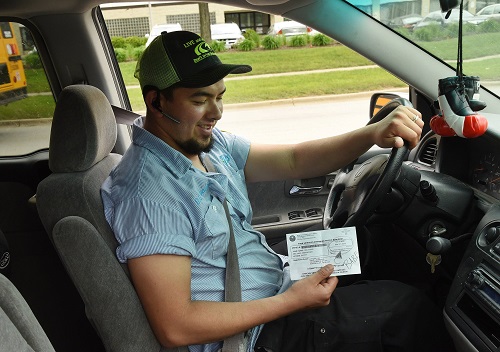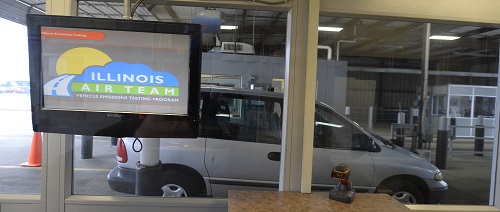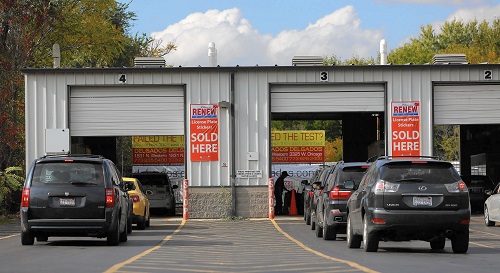Last updated on April 26th, 2018
Tennessee Car Insurance – Unlike most other states, Tennessee does not require vehicle owners to provide proof of insurance when they are registering a vehicle with the DMV. Requiring drivers to provide proof of insurance before registering a vehicle has proven to be one of the most effective methods in the county in forcing people to abide by car insurance regulations but Tennessee has opted to use other methods of enforcement in order to make sure drivers carry car insurance. Despite the fact that proof of insurance is not required to register a vehicle in Tennessee drivers are still required to be able to prove financial responsibility while operating a vehicle on public roads. If a driver is pulled over or involved in an accident they will have to provide proof of financial responsibility or risk being penalized for driving without insurance.
The purpose of financial responsibility is to ensure that drivers either have the resources or necessary insurance to pay for any injuries or property damage that occurs as a result of their driving. For most Tennessee residents the purchase of an insurance policy that meets state requirements is the easiest and most affordable way to secure proof of financial responsibility. For a car insurance policy to meet the minimum requirements established in Tennessee, it must include at least $20,000 in per person bodily injury liability coverage, $50,000 in per accident bodily injury liability coverage and $10,000 in property damage liability coverage. Liability coverage is the only type of insurance coverage required in Tennessee and while most states require multiple types of coverage Tennessee’s at-fault system functions to make sure that at a minimum every driver has the ability to pay for injuries and damage they cause to other parties in an accident. If a Tennessee resident wishes to add coverage that will pay for their injuries and property damage as well they are free to do so. Maintaining car insurance in Tennessee also protect the policyholder from any legal ramifications should their vehicle be involved in an accident. Tennessee’s car insurance system is based on tort law which allows private individuals to sue other individuals for damages relating to a variety of situations, including car accidents. If a driver fails to pay for the cost o an accident after being ordered to do so by the court it then becomes a criminal matter and the offending party can be punished with fines, suspensions and even possible jail time. If a Tennessee resident does not wish to purchase an auto insurance policy that meets state regulations the only other viable option afforded them is the purchase of bond or deposit in the amount of $50,000. After the deposit is made the drive must then fill out a form certifying that they have the money on deposit and submit it to the DMV as proof of financial responsibility. Failure to supply proof of insurance or financial responsibility on request is considered a Class C misdemeanor in the state of Tennessee and can be punished rather harshly.
Although Tennessee does not require proof of insurance to register a vehicle the state uses a variety o other effective methods in order to make sure as many people as possible meet Tennessee’s financial responsibility requirements. For instance, Tennessee requires all insurance companies that do business in the state to notify the DMV any time there is a cancellation, lapse or a non-renewal. This allows the DMV to act quickly when a driver and vehicle become uninsured instead of waiting for them to be involved in an accident or pulled over. Tennessee car insurance law also requires drivers to supply proof of insurance every time they are pulled over or involved in an accident, regardless of why they were pulled over or who was at-fault. Failure to supply proof of insurance or financial responsibility on request is considered a Class C misdemeanor in the state of Tennessee though punishment for such an offense is rather light compared to other states that treat driving uninsured as a misdemeanor. In most cases, an uninsured driver that is discovered by police will be slapped with a maximum fine of $100 and the mandatory suspension of the driver’s license. In some cases, such as ones involving a repeat offender, a driver can have their license suspended immediately but it is more common for the suspension to be delayed until the offender is allowed to have their day in court. If a Tennessee motorist can prove that they had insurance at the time the citation was issued the license suspension will generally be canceled but the driver will still have to pay the fine for failing to provide proof of insurance. If a driver has their license suspended in Tennessee for failing to maintain auto insurance they will have to pay a $20 reinstatement fee in order to have the suspension lifted and may even be required to obtain an SR-22 from their insurance company as proof of future insurance.
Find Smog Check Stations Near Me
To stay in compliance with the State of Tennessee’s smog check requirements, Tennessee-registered drivers must get their vehicles to pass a vehicle emissions test if they live in certain regions of the state. Check out our DMV & Emissions Testing Locations in Tennessee pages below to find a DMV office or testing location in your area.



